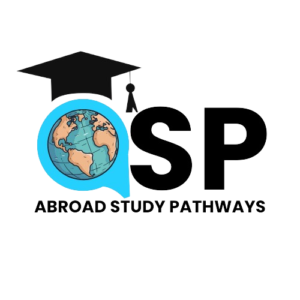Do you enjoy giving them the finest treatment possible for their illnesses? You ought to enroll in an apprenticeship programme for commercial pharmaceutical clerks (Ausbildung)! In Germany, there is a vocational training programme called the pharmaceutical-commercial employee Ausbildung that trains people to work in the pharmaceutical sector.

Understanding the Pharmaceutical-commercial employee Ausbildung in Germany
1. What do you mean by a Pharmaceutical-commercial employee?
An individual who works in the pharmaceutical industry and is specifically trained in promoting and selling pharmaceutical products to healthcare professionals, such as doctors, chemists, and hospitals, is known as a pharmaceutical-commercial employee, also known as a pharmaceutical sales representative or medical sales representative.
2. Roles of the Pharmaceutical-commercial employee Ausbildung in Germany.
- Learning essential skills in business administration, bookkeeping, and word processing.
- Gaining comprehensive knowledge of medicines, their components, and pharmacy regulations.
- Providing patients with instructions on correctly taking prescriptions and informing them about potential risks.
- Promoting and marketing pharmaceutical products to healthcare professionals.
- Working with cross-functional teams to develop marketing strategies.
- Explaining correct medication usage and potential risks to patients.
- In addition to your regular responsibilities at the pharmacy, you must attend school two days a week.
Pathways to Become Pharmaceutical-commercial Employee Ausbildung in Germany
1. Obtain the needed qualifications
- Complete 10+2 Exams: Pass 10+2 exams from a reputable junior college with a minimum 50% grade point average.
- Enroll in Pharmacy Program: Join a pharmacy diploma program or pursue a bachelor’s degree in pharmacy.
- Study Pharmacology: Learn about drug effects and interactions in the body.
- Explore Toxicology: Understand the harmful effects of chemicals and drugs on living organisms.
- Learn Biochemical Science: Gain knowledge of chemical processes in living organisms.
- Study Chemistry Applications: Understand formulation, synthesis, and analysis of pharmaceutical compounds.
- Gain Practical Experience: Participate in practical training and internships in pharmacy settings.
- Optional: Pursue Higher Education: Consider advanced degrees like a master’s or PhD in pharmaceutics or related fields.
2. Improve your abilities
- Identify relevant skills: Determine the skills needed in pharmaceutics, such as communication, analytical abilities, attention to detail, and technical aptitude.
- Create a skill development plan: Outline a plan to improve and develop these skills.
- Regular practice: Engage in regular practice to enhance proficiency in the identified skills.
- Seek additional training: Consider taking training courses to improve specific abilities like communication or computer skills.
- Stay updated: Stay informed about industry developments to maintain technical knowledge and skills.
- Seek feedback: Request feedback from supervisors or colleagues to identify areas for improvement.
- Utilize resources: Make use of online tutorials, books, and professional networks to aid skill development.
- Emphasize continuous learning: Maintain a mindset of ongoing learning to expand knowledge and skills throughout your career.
3. Obtain experience by working an internship
- Internships and Part-Time Work: Gain practical experience through internships or part-time positions.
- Combine Work and Education: Work part-time while studying to apply pharmacy theory in practice.
- Utilize Job Boards and Websites: Find internships and part-time roles on job boards, internship websites, and professional social media platforms.
- Gain Practical Skills: Develop relevant skills like medication dispensing and customer service during internships or part-time work.
- Network: Connect with professionals in the field to build relationships and explore potential job opportunities.
- Showcase Experience: Highlight your internship or part-time work on your resume to demonstrate industry knowledge and commitment.
- Seek Feedback and Learn: Use job experience to seek feedback, learn from experienced professionals, and enhance your skills in pharmaceutics.
Some popular Pharmaceutical-commercial Employee Ausbildung in Germany
1. Representative of the Pharmaceutical Industry
To healthcare providers, pharmacies, and other key stakeholders, pharmaceutical sales representatives market and sell pharmaceutical products. They help achieve sales goals by educating clients about products, cultivating relationships with them, and providing information.
2. Pharmacy Technician
Pharmacy technicians assist pharmacists in maintaining inventories, delivering drugs, and serving customers. They help handle prescriptions, put together drug orders, and make sure the pharmacy rules are followed.
3. Manager of Pharmaceutical Products
The creation and execution of marketing plans for particular pharmaceutical goods fall within the purview of pharmaceutical product managers. They cooperate with cross-functional teams, conduct market research, assess product performance, and plan promotional initiatives.
4. Expert in Regulatory Affairs
Specialists in regulatory affairs assure adherence to rules and regulations for the pharmaceutical industry. They oversee the procedures for new product submission and approval, keep records current, and give internal stakeholders regulatory assistance.
Duration of year
The Pharmaceutical-commercial Employee Ausbildung in Germany typically lasts for three years. It includes classroom instruction and on-the-job training at a pharmacy or pharmaceutical company. Students gain knowledge in areas like business administration, pharmaceutical regulations, customer service, and prescription management. Program structure and duration may vary by institution and region.
German training Programs
In an Ausbildung (apprenticeship) program for Pharmaceutical-commercial Employee in Germany, some common modules that are typically studied in institutions include:
Average Salary
According to Deutsche Aerzte Finanz, entry-level salaries in the pharmaceutical sector that are not otherwise specified in a collective agreement range from €3,500 to €4,000. Graduates might anticipate an increase in monthly income of €500 to €1,000.
Best universities for Pharmaceutical-commercial Employee Ausbildung in Germany
There are various universities that provides training in Pharmaceutical-commercial Employee and other related fields. Some of the popular universities are:
- University of Freiburg
- Frankfurt University
- University of Greifswald
- TU Braunschweig
- Kiel University
Application Process
- Gather information about businesses and technical colleges offering the apprenticeship program.
- Prepare application materials: résumé, cover letter, and necessary diplomas/transcripts.
- Follow the instructions for applying.
- Go through the hiring process: exams, interviews, and assessment centres.
- If selected, receive an acceptance letter and follow enrollment guidelines.
- Sign a contract outlining the apprenticeship terms.
- Begin apprenticeship: attend classes and engage in practical training.
- Adhere to the curriculum and rules set by the educational institution.
Research and gather information about businesses and technical colleges offering the apprenticeship program. Prepare application materials, follow instructions for submission, go through the hiring process, and if accepted, enroll, sign a contract, and begin the apprenticeship. Adhere to the curriculum and rules set by the educational institution.

